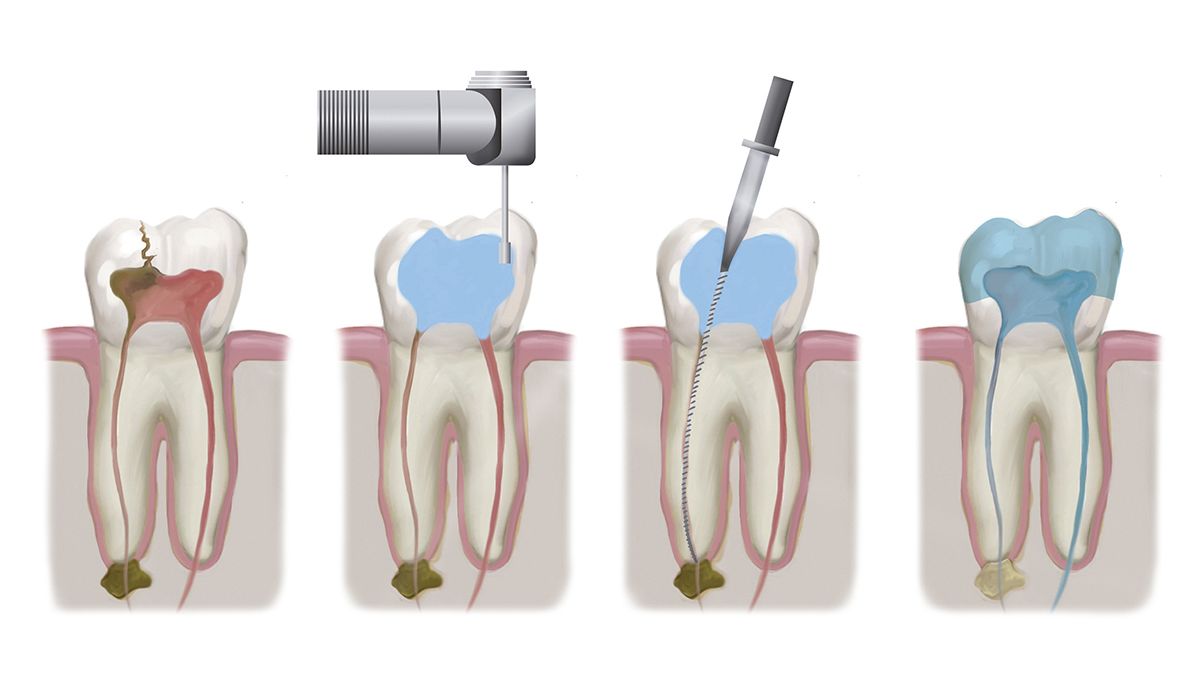Eliminate Infection and Restore a Damaged Tooth with Root Canal Therapy
When the pulp of a tooth becomes infected, it can result in significant pain and tenderness. The infection can also spread to adjacent teeth, compromising your overall oral health. At our Sterling, VA, dental practice, Dr. E. Richard Hughes believes in conservative treatment in order to save natural teeth whenever possible. Root canal therapy can save an infected tooth and prevent the tooth from having to be extracted. Patients requiring root canal therapy can benefit from sedation dentistry for optimal comfort during the root canal therapy process.
When is Root Canal Therapy Necessary?
There are many reasons why root canal therapy may be required, including deep decay or dental trauma. You may be a candidate for treatment if you are experiencing:
- A severe toothache
- Dental sensitivity to hot, cold, or sweets
- Swelling of the gums
- Bad taste or odor
- Tooth discoloration
Because infection can spread quickly, it is important to see your dentist right away if you notice any of these symptoms. Root canal therapy can eradicate the infection and alleviate your dental pain.
Dr. Hughes believes in conservative treatment in order to save natural teeth whenever possible. Root canal therapy can save an infected tooth and prevent the tooth from having to be extracted.
Root Canal Therapy: Understanding the Procedure
If Dr. Hughes determines root canal therapy is necessary, we will schedule a time for you to have your procedure. A staff member will escort you to one of our treatment rooms. If you have chosen to receive sedation, we will administer those medications first. Once you are comfortable, Dr. Hughes will numb the tooth and surrounding gum tissue with local anesthesia. A small access hole will be made in the chewing surface of the tooth. Dr. Hughes will insert tiny dental instruments through the access hole to clean out all of the infection, including the pulp, tissue, and nerves inside the tooth. Once the tooth is cleaned out, he will disinfect all internal surfaces, and fill the root canals with a rubbery dental material called gutta percha. The tooth will then be sealed with a dental filling. In some cases, a filling is sufficient to restore the tooth. However, many times, a tooth will require a dental crown, which will reinforce the structure of the tooth. If a crown is necessary, it will be placed during a second visit to our office.

Benefits of Root Canal Therapy
Root canal therapy offers several benefits. These include:
- Conservative treatment: Some people wrongly assume that root canal therapy is invasive and painful. However, it is not the treatment that is painful, but rather the decay that is causing the pain. In fact, root canal therapy is one of the most conservative procedures performed in dentistry. Most of our patients liken the experience to receiving a dental filling.
- Alleviation of pain: Root canal therapy can almost immediately alleviate dental pain and discomfort. Because the source of the problem is removed during treatment, most patients feel much better after their procedure is completed.
- Preservation of oral health: Oral bacteria can spread quickly. Once infection reaches other teeth, they can become compromised as well. Root canal therapy eliminates the infection and protects your oral health.
- High success rate: Root canal therapy is one of the most common and efficacious treatments performed in dentistry today. In fact, root canal therapy boasts a 95 percent success rate.
Contact Our Office Today
If you are experiencing a toothache, dental pain, or extreme sensitivity, you may have an infected tooth. To determine your treatment options and preserve your oral health with root canal therapy or another general dentistry treatment, schedule a consultation with Dr. Hughes. You can contact us online or call our office at (703) 454-5850.

